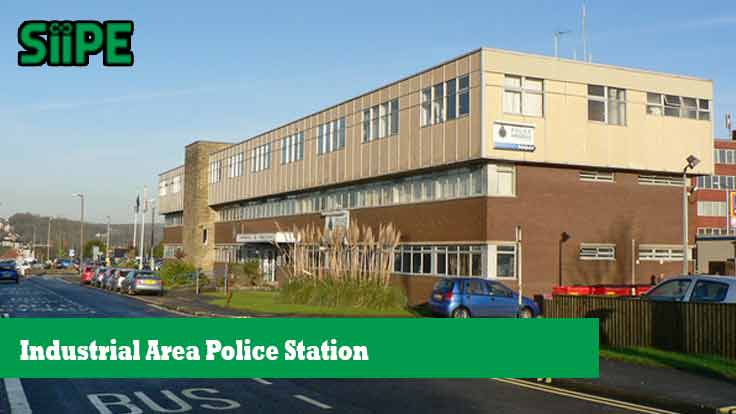Industrial areas are the backbone of economic growth, housing manufacturing plants, logistics hubs, and business centers. As these zones attract significant investments and a large workforce, ensuring security becomes a top priority. Industrial area police stations play a crucial role in maintaining law and order, preventing crimes, and fostering a safe environment for businesses to thrive. This article explores the significance, challenges, and future developments of police stations in industrial zones.
1. The Importance of Industrial Area Police Stations
Unlike conventional urban police stations, industrial area police stations have unique responsibilities due to the nature of the businesses they protect. Their role extends beyond typical law enforcement to encompass:
- Crime Prevention: Industrial areas are susceptible to theft, vandalism, and corporate espionage. A dedicated police presence deters criminals and ensures a rapid response to incidents.
- Labor Disputes and Strikes Management: With large numbers of workers, labor disputes can arise, sometimes escalating into strikes. Police play a key role in maintaining peace while ensuring workers’ rights are respected.
- Traffic and Logistics Security: Industrial zones experience high volumes of cargo transportation. Police help regulate traffic, prevent smuggling, and address road safety issues.
- Emergency Response and Disaster Management: Industrial zones often house hazardous materials, making them prone to fires, explosions, or chemical spills. The police coordinate with fire departments and emergency response teams to manage such crises effectively.
2. Challenges Faced by Industrial Area Police Stations
While these police stations are crucial, they face several challenges that can hinder their effectiveness:
- Limited Manpower and Resources: Many industrial police stations operate with limited personnel and outdated equipment, making it difficult to cover vast industrial zones effectively.
- Complex Legal Issues: Industrial disputes, intellectual property theft, and contractual conflicts require specialized legal knowledge that general law enforcement officers may not possess.
- Coordination with Private Security: Many businesses employ private security firms, and coordination between police and these firms is essential but sometimes challenging due to jurisdictional and operational differences.
- Cybersecurity Threats: As industries increasingly adopt digital technologies, cyber threats such as hacking and data breaches become concerns. Police need to collaborate with cybersecurity experts to tackle such crimes.
3. Best Practices for Effective Industrial Area Policing
To enhance security and efficiency, industrial police stations can adopt several best practices:
- Community Policing Approach: Establishing strong relationships with industrial businesses, local governments, and workers fosters trust and encourages cooperation.
- Use of Advanced Technology: Surveillance systems, drones, and AI-powered analytics can enhance monitoring and crime prevention.
- Specialized Training for Officers: Providing training on industrial laws, cybercrime, and crisis management ensures officers are well-equipped to handle industry-specific challenges.
- Public-Private Partnerships: Collaboration with private security firms, industrial associations, and emergency services enhances overall security efforts.
4. Future Trends in Industrial Area Policing
The future of industrial area policing is likely to be shaped by advancements in technology and policy developments, including:
- Smart Surveillance Systems: AI-driven monitoring and predictive policing can enhance real-time crime prevention.
- Integrated Security Networks: Police stations will likely work in closer coordination with private security firms through centralized command centers.
- Cybercrime Units: Dedicated teams will focus on preventing and investigating digital threats to industrial operations.
- Policy and Legal Reforms: Governments may introduce new regulations to strengthen industrial security and improve police capabilities.
Conclusion
Industrial area police stations play a vital role in ensuring security, maintaining order, and supporting economic activities. While challenges exist, adopting modern policing strategies and leveraging technology can significantly improve their effectiveness. As industrial zones continue to expand, the need for well-equipped and well-trained police forces will become even more critical in safeguarding businesses and workers alike.








